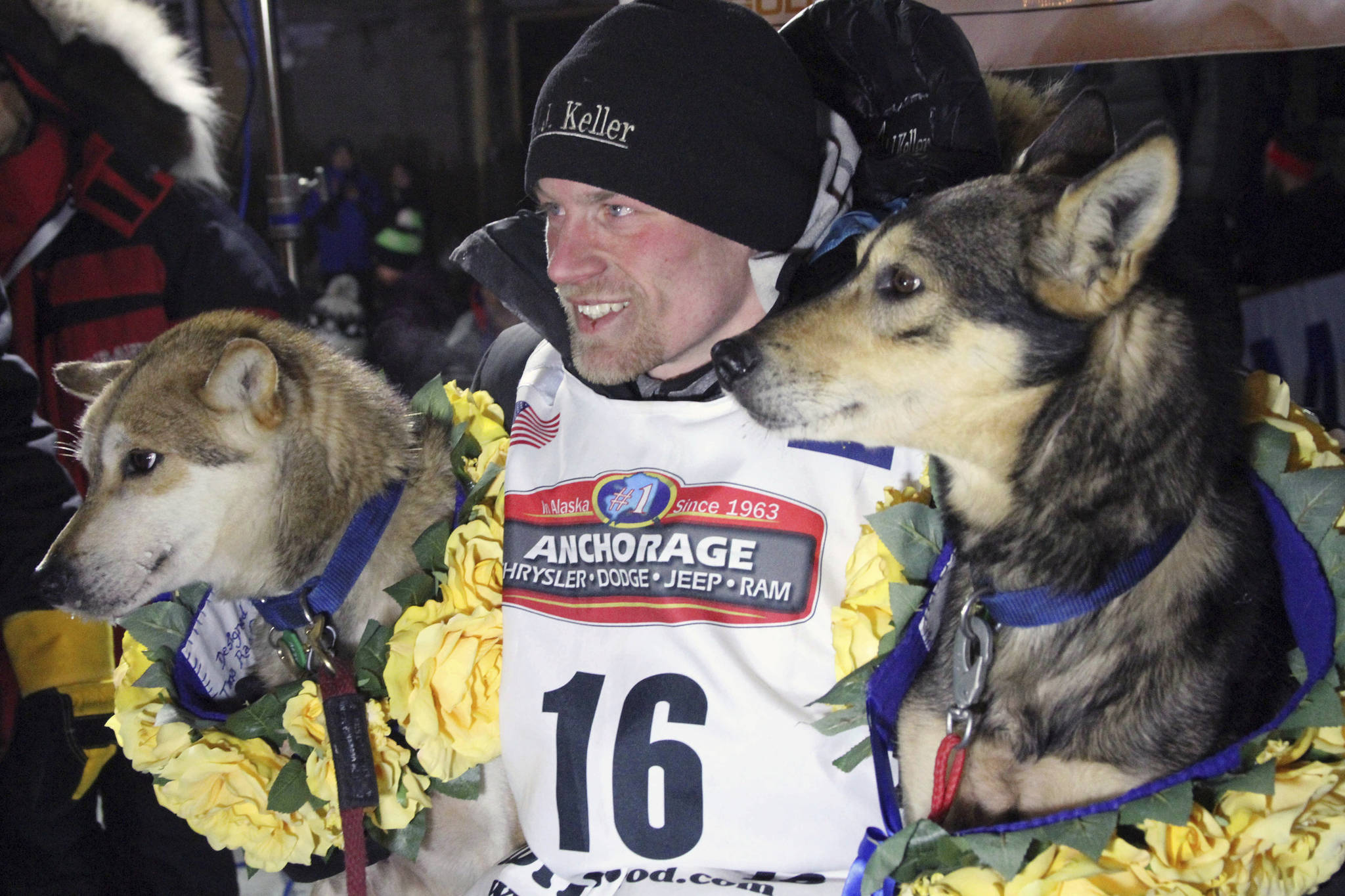ANCHORAGE — Four-time Iditarod champion Dallas Seavey denied Monday that he administered banned drugs to his dogs in this year’s race and said he has withdrawn from the 2018 race in protest of the allegation.
“I have never given any banned substance to my dogs,” Seavey said in a video posted to his Facebook page.
He didn’t immediately return calls to The Associated Press after the Iditarod Trail Committee identified him as the musher who had four dogs test positive for a banned opioid pain reliever after finishing the race last March in Nome.
Seavey said he fully expected the committee to ban him from the race for speaking out. There’s a so-called gag rule preventing mushers from making statements critical of the race or sponsors.
“I have done absolutely nothing wrong,” the 30-year-old Seavey said, adding he wouldn’t be “thrown under the bus” by the race’s governing board.
Iditarod officials on Monday identified Seavey as the musher whose dogs tested positive. The Iditarod Trail Committee met in an emergency meeting and decided to release the musher’s identity after initially refusing on a lawyer’s advice.
“Because of the level of unhealthy speculation involved in this matter, ITC has now decided to disclose the name of the musher involved,” the committee said in a statement.
Iditarod spokesman Chas St. George said it’s not his place to say if Seavey will be banned from the race because of his comments. He said the decision would have to be made by the Iditarod Trail Committee board of directors.
Seavey will not face any discipline involving the determination that drugs were given to the dogs.
As a result of the positive test findings, the race rule dealing with canine drug use was revised earlier this month to hold mushers liable for any positive tests in future races unless the mushers can prove the results happened because of something outside of their control.
Previously, the rule could be interpreted to require that race officials provide proof that a musher intended to administer the prohibited substance.
Officials say four dogs in Seavey’s team tested positive after the finish of this year’s Iditarod Trail Sled Dog Race in Nome in March. The banned substance was the opioid pain reliever, Tramadol.
Organizers relented after scores of professional mushers ay demanded that race officials identify the musher.
A statement from the Iditarod Official Finishers Club was signed by 83 current and former competitors who called for the musher to be named within 72 hours.
The demand came after the group met Sunday to discuss how organizers of the nearly 1,000-mile (1,609-kilometer) race handled its first instance of dogs testing positive for a banned drug.
After Seavey was named, club president and competitor Wade Marrs said he doesn’t believe Seavey intentionally administered the drugs to his animals. Marrs said he believes the musher has too much integrity and brains to do such a thing as administer drugs before an expected test.
“I don’t really know what to think at the moment,” Marrs said. “It’s a very touchy situation.”
Seavey’s dog team was tested six hours after finishing the race in Nome, officials said. Race officials have estimated the drug could have been administered 15 hours or less before the test.
Seavey, who was not among the mushers who signed the finishers club statement, won the Iditarod in 2012, 2014, 2015 and 2016. He finished second last year to his father, Mitch, and has had nine straight top 10 finishes.
Dallas Seavey is a former Alaska high school wrestling champion and also spent a year at the U.S. Olympic Training Center before turning his attention back to dogs. He lives in Willow, a community located about 50 miles north of Anchorage and widely considered to be the dog mushing capital of the nation.
Only the first 20 teams to reach Nome are tested, leading to a feeling among mushers that any of them could be suspected because the musher whose dogs failed the test was not identified, mushers said.
Officials had initially refused to identify the musher because they said it was unlikely they could prove the musher intentionally administered the drug and because a lawyer advised them not to make the name public.
The Iditarod began testing sled dogs for prohibited substances in 1994. Dogs on all teams are subject to random testing between pre-race examinations and along the race trail. Testing in Nome for top finishing teams, however, is not random but expected.

